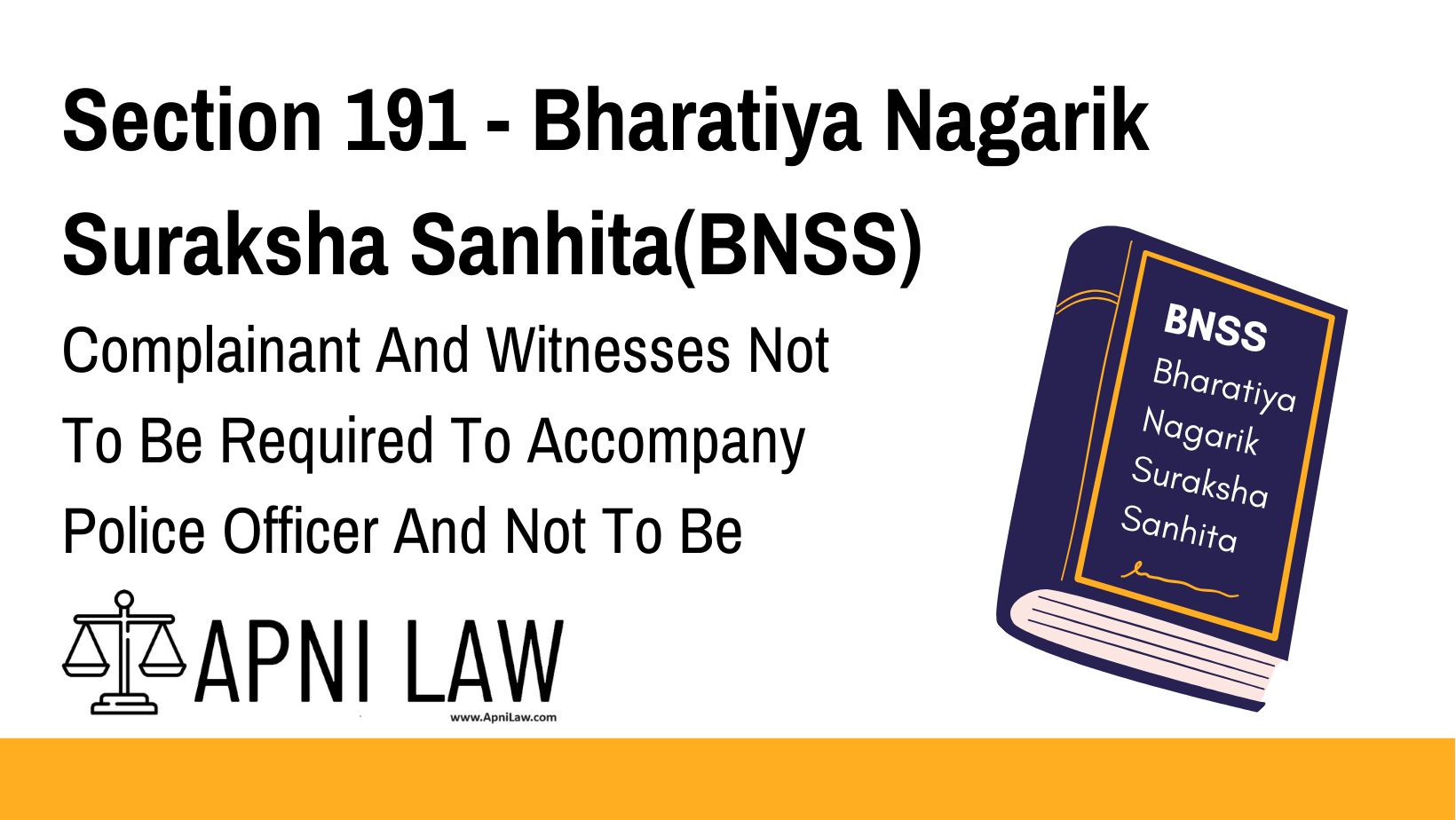Code:
No complainant or witness on his way to any Court shall be required to accompany
a police officer, or shall be subjected to unnecessary restraint or inconvenience, or required
to give any security for his appearance other than his own bond:
Provided that if any complainant or witness refuses to attend or to execute a bond as
directed in section 190, the officer in charge of the police station may forward him in
custody to the Magistrate, who may detain him in custody until he executes such bond, or
until the hearing of the case is completed.
Explanation
Section 191 BNSS ensures that complainants and witnesses are not harassed, restrained, or subjected to unnecessary hardship while attending court proceedings. This provision protects the rights of individuals involved in legal proceedings by preventing police officers from compelling them to accompany them or forcing them to provide security beyond their own bond.
However, if a complainant or witness refuses to attend court or fails to execute a bond as required under Section 190, the police officer in charge may forward them in custody to the Magistrate, who has the authority to detain them until they comply or until the case is concluded.
Key Provisions:
- No Compulsion: Witnesses and complainants cannot be forced to accompany a police officer to court.
- No Unnecessary Restraint: They must not face unnecessary inconvenience or detention while appearing for legal proceedings.
- No Security Required: They cannot be required to provide security for their appearance other than their own bond.
- Enforcement Measures: If a witness refuses to attend or fails to execute a bond, they may be forwarded in custody to the Magistrate under Section 190.
- Magistrate’s Authority: The Magistrate can detain the witness until they agree to appear or until the case is completed.
Illustration
Example 1: Protection of a Witness from Police Restraint
A witness in a fraud case is on his way to court when a police officer asks him to accompany him to the police station for further questioning. Under Section 191, the witness has the right to refuse unless formally required under a court order.
Example 2: Forwarding a Witness in Custody
A key witness in a murder trial refuses to attend court despite being summoned under Section 190. The officer in charge forwards him in custody to the Magistrate, who detains him until he executes a bond ensuring his appearance.
Common Questions and Answers
1. Can a police officer force a witness to accompany them to court?
- Answer: No, under Section 191, witnesses cannot be forced to accompany a police officer or be subjected to unnecessary restraint or inconvenience.
2. Does a witness have to provide security for their appearance in court?
- Answer: No, witnesses are only required to provide their own bond for their appearance and cannot be asked for additional security.
3. What happens if a witness refuses to appear in court?
- Answer: If a witness refuses to attend or fails to execute a bond under Section 190, the police officer may forward them in custody to the Magistrate, who may detain them until they comply.
4. Can a Magistrate detain a witness for not appearing?
- Answer: Yes, if a witness refuses to execute a bond for their appearance, the Magistrate has the power to detain them until they agree to comply or until the case is concluded.
Conclusion
Section 191 BNSS protects witnesses and complainants from coercion by ensuring they are not forced to accompany police officers or subjected to restraint. However, if they refuse to appear, they can be forwarded in custody to a Magistrate, who has the power to detain them until they comply. This provision ensures a balance between witness rights and legal accountability.











